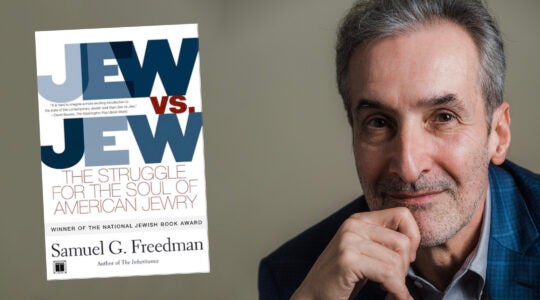“We will offer every child, from every borough of this city, truly universal, full-day Pre-K.”
That was Mayor Bill de Blasio’s promise to the children of New York City one year ago in his inaugural State of the City address. The Mayor's pledge of a free pre-K program available to every four-year-old in New York City — regardless of background, religion, or socio-economic status — signaled an exciting and visionary approach to early childhood education for all New York preschoolers.
Unfortunately, this signature education program that promised universality — not just in the nature of the program but in its very name — has fallen far short of the commitments the mayor made one year ago.
Let’s recall that last year Mayor de Blasio was granted $300 million from New York State to implement his universal pre-K program. With such resources, and in light of the Mayor’s stated desire for universal participation, we anticipated that all 4-year-olds in the Orthodox community — together with all other eligible children in New York — would have a place in UPK.
You can imagine our surprise when the City’s regulations for the full-day pre-K program included a mandatory 6-hour and 20-minute period of uninterrupted secular education — a full hour and 20 minutes more than the regulations set by New York State law. It is nearly impossible for Jewish day schools and yeshivas to provide secular education for this period of time and still have time to provide appropriate levels of privately-funded religious instruction — not to mention the need to close early in time for Shabbat on a Friday. Remember, this is pre-K and these children are 4 years old. A seven- or eight-hour day for a four-year-old simply doesn’t work.
Because of these requirements, that are unique to New York City, only 11 percent of New York City’s children of eligible pre-K age enrolled in Jewish day schools and yeshivas are able to participate in the UPK program. With 89 percent of the Jewish day school students left “out in the cold,” how can we call the Mayor’s pre-K program “universal”?
The Orthodox Union is calling on Mayor de Blasio to modify his UPK program so it can achieve the goal with which we all agree — truly universal pre-K for all New York City’s children. This cannot happen without reforms that will allow for the Jewish providers to truly participate; indeed, according to New York City’s Independent Budget Office, Jewish day schools are the city’s largest provider of non-public school education.
For the past year we have tried, repeatedly, to work with the Mayor’s office to help implement his signature program in a fully inclusive manner. We have proposed multiple options to City Hall for making this important program work better. These include aligning the city’s length of school day requirement with the state’s (i.e, five hours of secular instruction) or allocating more funds to a half-day UPK program so that our children could, at least, participate partially. The city currently administers a half-day program, but it needs to be renewed annually and so far, that hasn't happened.
It’s now February, and New York City’s schools, parents, and — most importantly — our children deserve to know whether they will be able to participate in UPK come next September. And we are all entitled to know whether or not New York City’s Universal Pre-K program will live up to its name.
Allen Fagin is executive vice president of the Orthodox Union.
The New York Jewish Week brings you the stories behind the headlines, keeping you connected to Jewish life in New York. Help sustain the reporting you trust by donating today.




